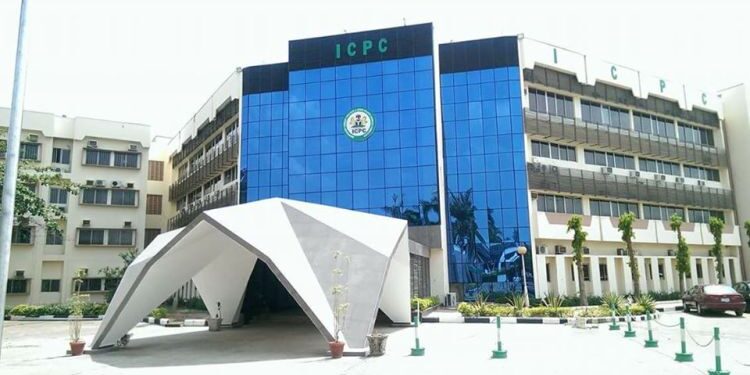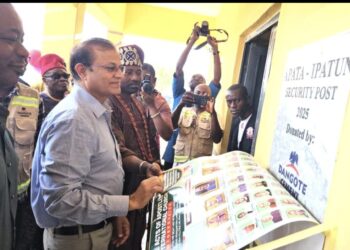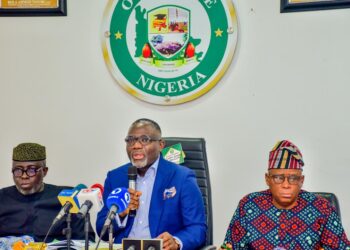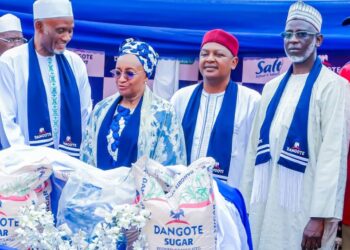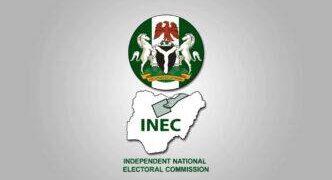Chairman of the Independent Corrupt Practices and Other Related Offences Commission (ICPC), Dr. Musa Aliyu, has confirmed the recovery of N21 billion linked to salary fraud in a single investigation.
He attributed this success to the adoption of the Integrated Payroll and Personnel Information System (IPPIS).
Aliyu disclosed this while speaking in Abuja at the 2025 National Conference on Public Accounts and Fiscal Governance organised by the Senate and House of Representatives Public Accounts Committees.
He called for the creation of a special court dedicated to prosecuting economic and corruption-related crimes.
To reduce leakages and improve transparency, Aliyu advocated full digitization of key government functions, including payroll, procurement, and revenue collection.
“If we digitize our systems and eliminate human discretion, we will cut out most of the corruption,” he said, referencing Bulgaria as an example where procurement processes are completely transparent and publicly accessible.
Aliyu also urged lawmakers to enact a comprehensive whistleblower protection law.
He described this as a crucial step to encourage citizen reporting of corruption.
“Let it not just be policy. Let it be law, with protection and incentives for those who speak out,” he emphasized.
He pressed for the establishment of special anti-corruption courts through constitutional amendments to ensure quicker justice.
Recalling his experience as a prosecutor, he noted that some cases brought by the EFCC date as far back as 2006 and remain unresolved due to persistent adjournments and changes in presiding judges.
Warning of the urgent need for action, he said : “We don’t have many options—just two.
“It’s either we kill corruption or corruption kills us. And the choice, as they say in science, is in our hands.”
Dr. Aliyu commended the National Assembly for organizing the conference and called for stronger partnerships with civil society and the media to increase transparency, educate citizens, and uncover wrongdoing.
“This war is not the EFCC’s alone. It must be fought by all Nigerians. All hands must be on deck,” he added.
He further urged the National Assembly to intensify its oversight on revenue-generating agencies, many of which he said operate with impunity, treating public funds as personal property.
“The funny thing is that these revenue-generating agencies believe the money is their own.
“But unfortunately, it’s not. So please, intensify oversight so they’ll be held accountable and bring to the table whatever they collect,” he said.
Represented by the Director of Finance, Akporo Michael, Dr. Aliyu also expressed support for the fiscal policy reforms of the current administration, including new tax legislation.
He said the reforms would reposition Nigeria’s fiscal structure and significantly boost revenue generation.
“For the first time in our history, the government has taken the bull by the horns by reforming our tax system,” he stated, explaining that the reforms aim to increase the country’s tax-to-GDP ratio to between 18% and 20%.
Currently, Nigeria’s tax-to-GDP ratio stands at just 7.8%, among the lowest in sub-Saharan Africa.
In comparison, countries like Kenya, South Africa, and Egypt maintain double-digit ratios, which have led to greater investments in infrastructure and service delivery.
“Our budget implementation suffers every year because we do not mobilize enough revenue.
“Contractors in my office have been waiting for payment since last year. It is time to close the gaps,” he said.
Dr. Aliyu also expressed concern about the lack of transparency surrounding the Nigerian National Petroleum Company Limited (NNPCL).
Comparing it to its Saudi counterpart, Aramco, he pointed out: “In 2024, Aramco posted a net profit of $106.25 billion. In the same year, our NNPC made just $2.4 billion.
“Granted, Aramco’s capacity is higher. It produces 9.1 million barrels per day, while Nigeria produced 1.3 million in 2024.
“Even if Aramco produces 10 times more, our profit should be at least 10% of theirs—but we earned just 2.4%.”
He further called for a complete overhaul of Nigeria’s public sector salary structure, describing the current arrangement as unjust and demoralizing.
He encouraged lawmakers to collaborate with the Salaries and Wages Commission to harmonize pay scales fairly and in line with economic realities.
While acknowledging Nigeria’s recent progress in global corruption rankings, Dr. Aliyu warned that the country still had a long way to go.
“We’ve improved, but we’re still not where we should be.
“Out of 140 countries ranked by Transparency International in 2024, Nigeria is still behind 100. That means only 40 countries are below us,” he said.
He attributed widespread corruption to weak accountability, misuse of public office, inadequate sanctions, and lack of transparency, noting that these issues have created a trust deficit between citizens and the government and discouraged foreign investment.
Also speaking at the conference, the Governor of the Central Bank of Nigeria (CBN), Mr. Olayemi Cardoso, emphasized the importance of synergy between fiscal and monetary authorities in achieving macroeconomic stability.
Represented by a senior official, Cardoso dismissed the notion that the CBN and fiscal agencies operate at cross-purposes.
“Contrary to general belief, the Central Bank and fiscal authorities are not working at odds.
“They may use different tools, but their goals are the same—economic growth, stability, and improved welfare for Nigerians,” he said.
Cardoso explained that one of the CBN’s key responsibilities is to ensure that government spending aligns with broader macroeconomic goals, including inflation control, exchange rate stability, and a strong naira.
He noted that since the current CBN management took office, the bank has adopted a proactive stance in responding to both global and local economic challenges.
He cited Nigeria’s minimal exposure to recent geopolitical shocks as evidence of this strategic shift.
“We don’t sit and wait for events to occur. That’s why even recent global disruptions have had minimal impact on Nigeria’s economy,” he said.
The CBN Governor concluded by stressing the need for a unified macroeconomic strategy built on transparency, collaboration, and shared national goals to navigate the country’s economic challenges effectively.
Source – BarristerNG
(vitalnewsngr.com)


